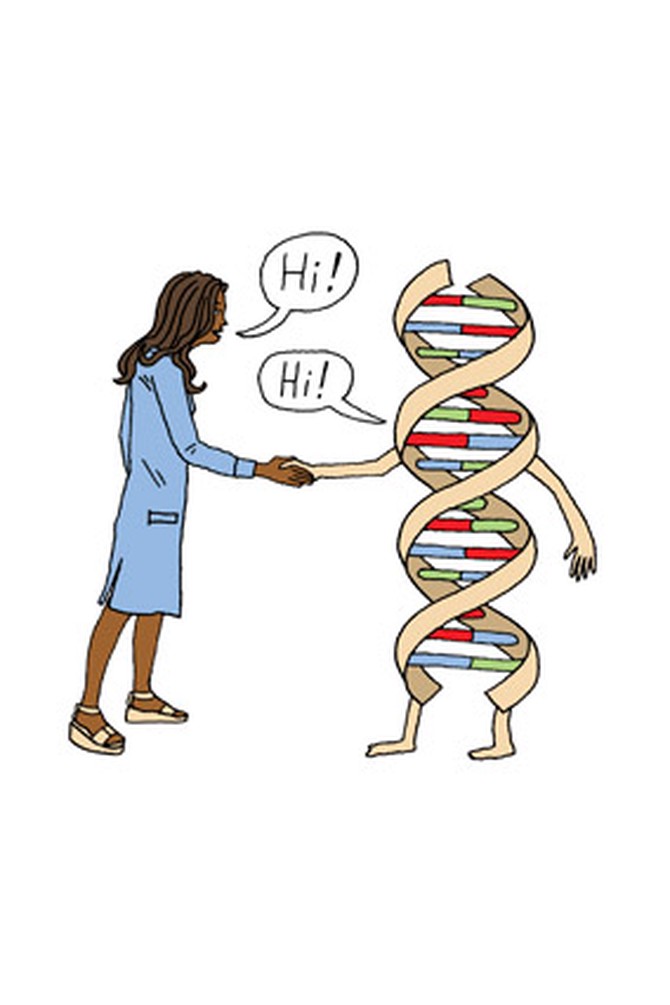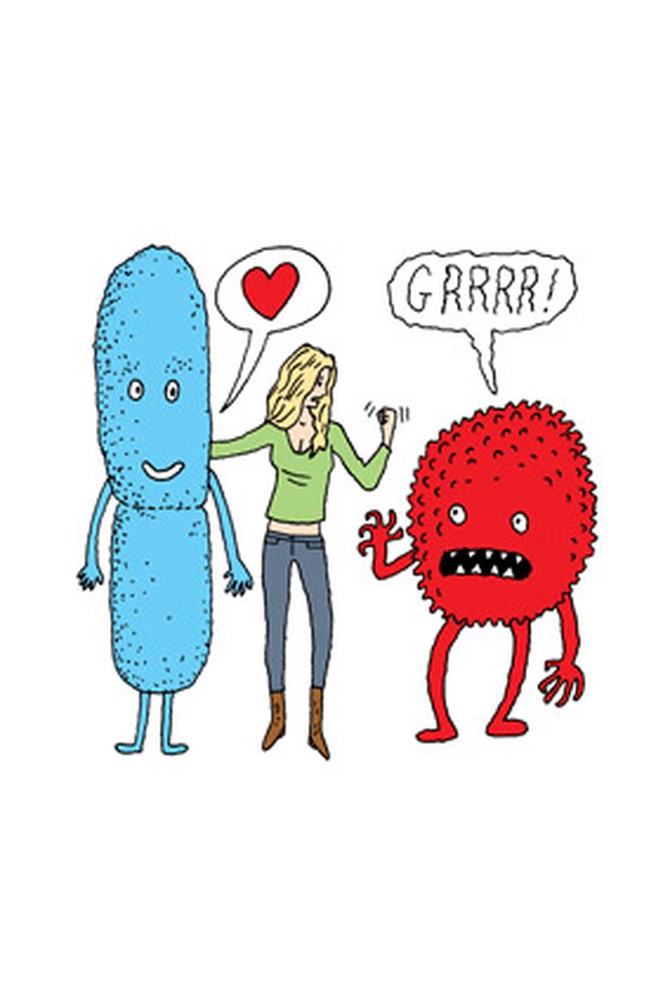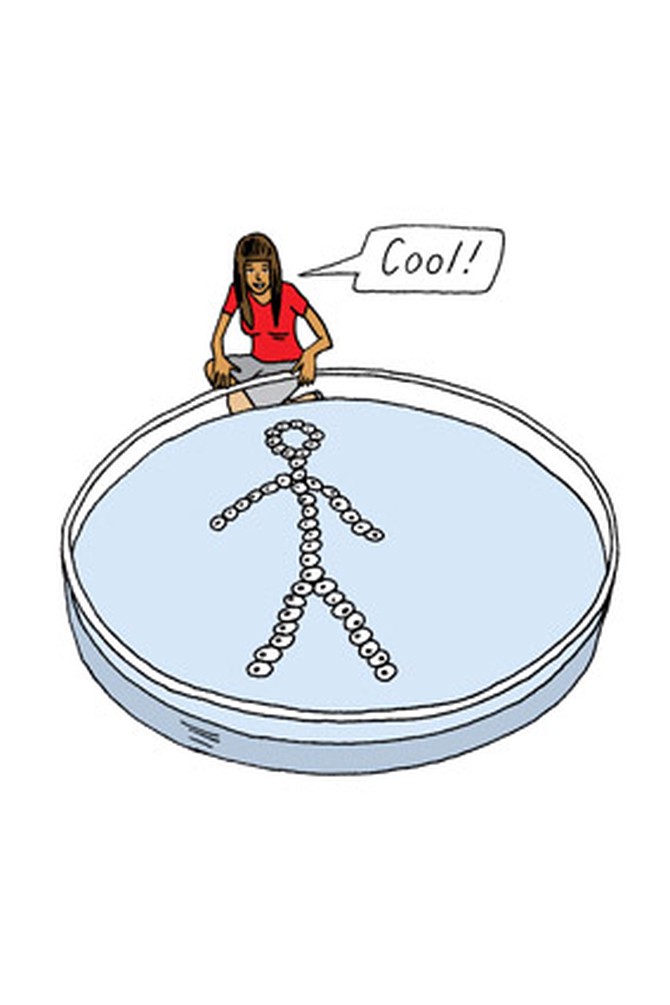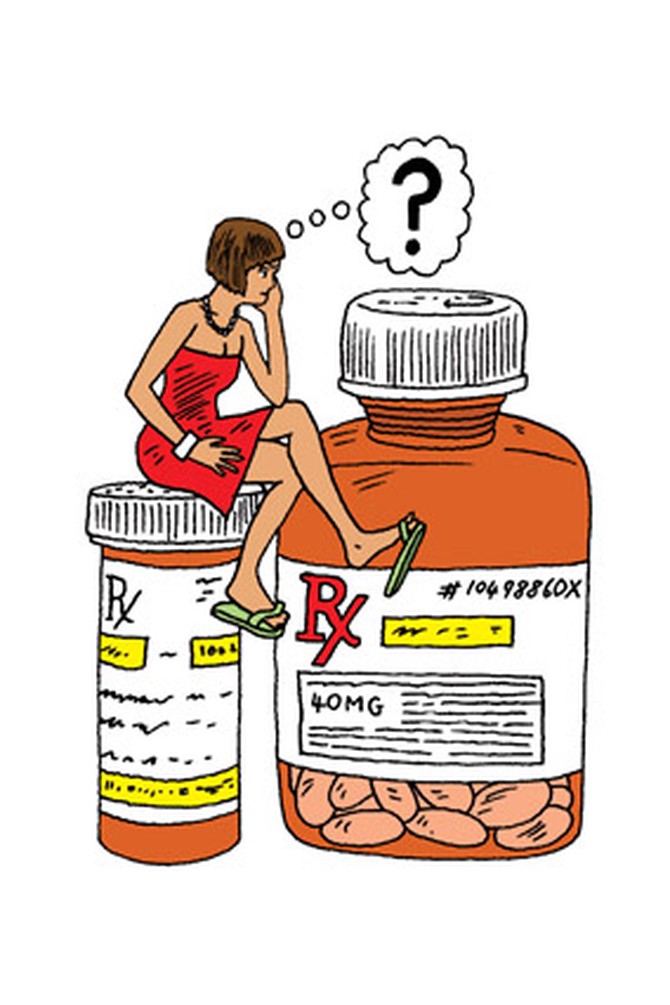Dr. Oz: 5 Pieces of Advice I'll Be Giving 10 Years from Now
A peek into the future of medicine.
By Dr. Mehmet Oz

Photo: Greg Kessler
The first time I met Danielle, she came into my office loaded down with a backpack, a suitcase, and several plastic bags.
"Where are you headed?" I asked.
"Right here," she said.
Most patients bring me a list of their medications; Danielle had brought me the contents of her entire medicine cabinet—as well as binders full of meticulously organized medical records and the food labels from everything she'd eaten during the last week. "I want you to have as much information as possible so you can figure out how to help me get better," she said.
Danielle was being smart: Her luggage held a wealth of clues, and we pieced them together to come up with the right diagnosis.
The care that doctors deliver is limited by how much we know about our patients, which is why I believe the future of medicine will be all about the details—the kinds Danielle brought me and so many more. We will have the technology to gather precise information about our bodies, and the scientific know-how to interpret that data. The result will be more personalized, holistic healthcare. Here's a look at some of the advice I expect to be giving a decade from now.
Next: Why your DNA could help doctors treat you
"Where are you headed?" I asked.
"Right here," she said.
Most patients bring me a list of their medications; Danielle had brought me the contents of her entire medicine cabinet—as well as binders full of meticulously organized medical records and the food labels from everything she'd eaten during the last week. "I want you to have as much information as possible so you can figure out how to help me get better," she said.
Danielle was being smart: Her luggage held a wealth of clues, and we pieced them together to come up with the right diagnosis.
The care that doctors deliver is limited by how much we know about our patients, which is why I believe the future of medicine will be all about the details—the kinds Danielle brought me and so many more. We will have the technology to gather precise information about our bodies, and the scientific know-how to interpret that data. The result will be more personalized, holistic healthcare. Here's a look at some of the advice I expect to be giving a decade from now.
Next: Why your DNA could help doctors treat you

Illustration: Peter Arkle
Know Your DNA
Our one-size-fits-all approach to medicine will soon be a thing of the past. In ten years, you'll likely be able to get your entire genome sequenced at an affordable price, and doctors will use that information to tailor your treatment to your unique genetic makeup. By 2022 there might be a drug designed for your specific kind of migraine or even your depression.
What You Can Do Today
There are a few direct-to-consumer services that will examine a small part of your genome for anywhere from $100 to $2,000. You might learn about your predisposition for some diseases, odd traits, maybe even a hidden talent. The services are not yet regulated by the FDA, however, and the results should always be interpreted with medical guidance (23andMe.com, Decode.com, Navigenics.com).
What You Can Do Today
There are a few direct-to-consumer services that will examine a small part of your genome for anywhere from $100 to $2,000. You might learn about your predisposition for some diseases, odd traits, maybe even a hidden talent. The services are not yet regulated by the FDA, however, and the results should always be interpreted with medical guidance (23andMe.com, Decode.com, Navigenics.com).

Illustration: Peter Arkle
Check Your Bug Type
Between 300 and 500 species of bacteria live in your digestive tract. Some are beneficial bacteria that process indigestible carbohydrates, extract nutrients, and protect against disease; some are harmful bacteria associated with a range of health problems, from autoimmune disorders to gastric cancer. One way to promote the good bugs is by feeding them fiberlike substances called prebiotics. (See below for examples.) But ten years from now, we will have a much more detailed understanding of intestinal ecology: Your doctor may be able to tell you which bacteria species you lack and which prebiotics you should eat to boost the population of those species. Achieving the right mix of microbes might help with weight loss, immunity, and digestive problems; studies also indicate that certain prebiotics can minimize inflammation, increase calcium absorption, improve bone density, and help kill cancer cells in the colon.
What You Can Do Today
Start incorporating more prebiotics into your diet now. They occur naturally in a variety of plants, including onions, asparagus, artichokes, garlic, chicory, and bananas. You can also cultivate more good bugs in your gut by eating probiotics—live bacteria in yogurt and fermented foods. If you've recently suffered a serious illness (especially one that required antibiotics), it's worth trying probiotic supplements to restore balance to your intestines. Look for reputable brands of flora such as Lactobacillus acidophilus or rhamnosus GG and Bifidobacterium bifidum.
What You Can Do Today
Start incorporating more prebiotics into your diet now. They occur naturally in a variety of plants, including onions, asparagus, artichokes, garlic, chicory, and bananas. You can also cultivate more good bugs in your gut by eating probiotics—live bacteria in yogurt and fermented foods. If you've recently suffered a serious illness (especially one that required antibiotics), it's worth trying probiotic supplements to restore balance to your intestines. Look for reputable brands of flora such as Lactobacillus acidophilus or rhamnosus GG and Bifidobacterium bifidum.

Illustration: Peter Arkle
Regrow Your Own
Because stem cells can grow into many different types of cells, they could be ideal tools for fixing a wide range of health problems. These "master cells" can now be readily harvested from your own skin and fat tissue; in ten years, they may be routinely used to treat anything from acne scarring to damaged heart muscle. There's also a great deal of promise for stem cell treatments in patients with chronic autoimmune diseases like type 1 diabetes and rheumatoid arthritis.
What You Can Do Today
If you think you might be a candidate for stem cell therapy, ask your doctor about relevant clinical trials. Insurance companies typically consider most stem cell–based treatments experimental.
What You Can Do Today
If you think you might be a candidate for stem cell therapy, ask your doctor about relevant clinical trials. Insurance companies typically consider most stem cell–based treatments experimental.

Illustration: Peter Arkle
Think Before You Medicate
A recent report predicts that prescription drug out-of-pocket spending will jump by 30 percent within the next four years. As we swallow a greater number of pills, it will be increasingly important to communicate with our doctors about the meds and supplements we take to avoid negative interactions and dangerous additive effects. During the past three decades, the number of deaths caused by drugs increased sixfold.
You should also have frequent conversations with your doctors about the effectiveness of your medications. As more genetic tests become available, physicians will be able to tailor dosages.
What You Can Do Today
To learn more about potential interactions between the medications, herbs, and vitamins you take now, look them up at MediGuard.org and DoctorOz.com.
You should also have frequent conversations with your doctors about the effectiveness of your medications. As more genetic tests become available, physicians will be able to tailor dosages.
What You Can Do Today
To learn more about potential interactions between the medications, herbs, and vitamins you take now, look them up at MediGuard.org and DoctorOz.com.

Illustration: Peter Arkle
Find a Doc Who Prescribes Apps
Cell phones are already becoming medical devices as developers create more and more apps that can track everything from your metabolism to your glucose levels. The best doctors in 2022 will help patients use their personal data to take better care of themselves, so find a physician who is willing to reflect on your statistics and work with you to form healthier habits.
What You Can Do Today
Start experimenting with some of the smarter apps that are already available. Lose It! is a nicely designed weight loss tool that lets you record calories and exercise. Sleep Cycle uses the accelerometer in an iPhone to monitor your movement in bed and track your sleep phases. MoodPanda is a free interactive journal that displays your emotions over time with cool graphics like pie charts and graphs; keeping a log of your emotions can help you spot patterns in your mood and note the things that make you feel good.
Next: 3 important health tests every woman needs
What You Can Do Today
Start experimenting with some of the smarter apps that are already available. Lose It! is a nicely designed weight loss tool that lets you record calories and exercise. Sleep Cycle uses the accelerometer in an iPhone to monitor your movement in bed and track your sleep phases. MoodPanda is a free interactive journal that displays your emotions over time with cool graphics like pie charts and graphs; keeping a log of your emotions can help you spot patterns in your mood and note the things that make you feel good.
Next: 3 important health tests every woman needs
From the October 2012 issue of O, The Oprah Magazine

